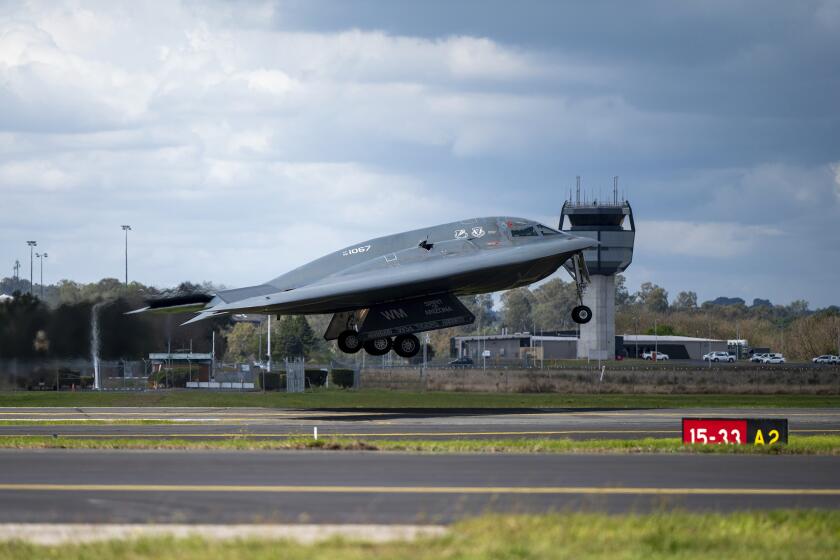Central Europe’s 4 Visegrad Nations Knock at EU’s Door
When the presidents of Poland, Hungary and Czechoslovakia met in the scenic Hungarian town of Visegrad in February 1991, they dealt with urgent problems of the early post-Communist period and pledged their countries’ cooperation as a regional group.
The summit was useful in smoothing the dissolution later that month of the Warsaw Pact, the Soviet-led military alliance that had played a key role in Moscow’s long domination of Eastern Europe. But after Czechoslovakia split in 1993 into the Czech Republic and Slovakia, the fledgling Visegrad group’s four countries made little progress in boosting their cohesion.
Now the Visegrad Four, as the group is sometimes called, are trying to put real life into their cooperative efforts, largely to boost the countries’ prospects for membership in the European Union. Political leaders increasingly speak with a united voice, and they are trying to pass the idea of regional cooperation down from the summit level to that of grass-roots nongovernmental organizations.
“The Visegrad group is quite a homogenous group of countries with a very similar level of economic and social development,” said Urban Rusnak, executive director of the newly established International Visegrad Fund. “We are neighbors in Central Europe. Some of our countries have additional links--for example, three are, from the linguistic point of view, Slavic countries. We have common experiences after World War II.”
By demonstrating their ability to cooperate with one another, the four countries hope to show the European Union that they will be good regional partners, Rusnak added.
Because Poland, Hungary and the Czech Republic all joined the North Atlantic Treaty Organization last year, the Visegrad countries collectively have a stronger voice in Western Europe than any of the other former Soviet bloc states--and they are trying hard to make it heard.
The prime ministers of the four countries issued a joint statement at a June 9 summit in Prague, the Czech capital, calling on the European Union to agree by the end of this year on a target date for its next wave of expansion. “We share the view that it is of utmost importance to keep momentum of EU enlargement,” the statement said.
Leading applicants--including Hungary, the Czech Republic and Poland--say they are aiming to be ready for EU membership Jan. 1, 2003. But West European officials have indicated with increasing openness in recent months that expansion is unlikely before 2005.
In many of the former Soviet bloc states, this is viewed with great concern as an indication of growing EU reluctance concerning expansion.
While in Prague, the prime ministers also signed the agreement establishing the new Visegrad fund, which will use money contributed by the four governments and by private donors to provide matching funds for projects in areas ranging from science and culture to education and sports.
In order to receive funding, organizations should plan projects involving partners from all four countries, Rusnak said. The fund will distribute nearly $1 million a year in government money, he said.
“One of the main aims [is] to help rebuild old ties that existed before, [which] could be from the 19th century or the Communist era,” Rusnak said. “More important is that we are helping to build up new ties.”
Rusnak said he views the fund as part of an effort to institutionalize the Visegrad group and firm up its support in all four countries so that it can more easily survive any change of government in member states.
The governments of all four countries favor cooperation within the Visegrad group, and “we have a very positive spirit,” Rusnak said. “But in all four countries, there are alternative political forces which are not so open to cooperation.”
The new fund will “create the opportunity for people to cooperate, to network, to make links,” Rusnak said. “I hope personally that we’ll create much bigger demand for that kind of cooperation.”
More to Read
Sign up for Essential California
The most important California stories and recommendations in your inbox every morning.
You may occasionally receive promotional content from the Los Angeles Times.










